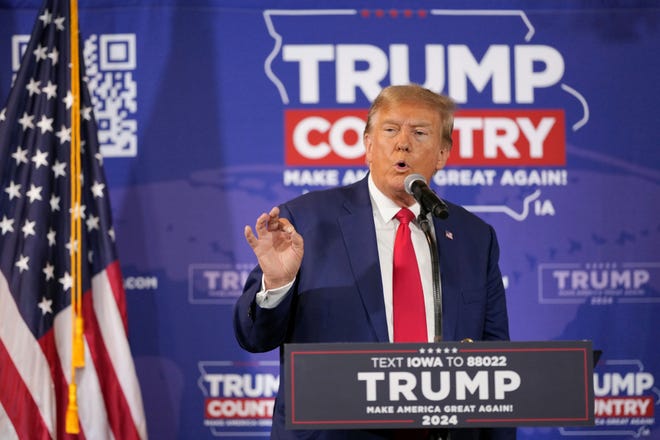It’s officially 2024, which means another presidential election is upon us. In the coming months, Americans will go to the polls several times to choose the next president of the United States.
Voters will first vote in primaries and caucuses to choose Republican Party and Democratic Party candidates. In the Republican race, former president Donald Trump dominates his GOP rivals and is expected to clinch the party’s nomination. And barring major upheavals, President Joe Biden will likely be the Democratic choice in November, setting up a 2020 general election rematch between the two adversaries.
However, the road to the general elections is long and strewn with pitfalls that candidates must overcome. Mark your calendars with these must-see presidential election dates as the race heats up.
January 15: Iowa Republican Caucus
The Iowa caucuses are the first event of the 2024 election season. Republican voters will gather at meetings hosted by local political parties to vote for their preferred candidate.
Mid-December polls showing Trump with a double-digit lead in Iowa over other Republican candidates. Iowa Democrats will hold caucuses on Jan. 15, but they will not vote due to a change in the party’s national schedule. Democrats across the state can submit absentee ballots until March 5, when results are expected to be released.
January 23: New Hampshire primary
The Granite State primary could be a turning point in the 2024 race. Nikki Haley, former governor of South Carolina has seen growing support in the state, and pollsters and pundits are watching closely to see if she can eke out a victory against Trump to build momentum heading into other crucial primaries.
In the Democratic race, President Joe Biden will not appear on the New Hampshire ballot due to a conflict between the state and the Democratic Party. The state’s Democratic leaders are mounting a write-in campaign to support the president, but his victory is not guaranteed.
February 3: South Carolina Democratic Primary
The Democratic Party moved South Carolina to in front of his main calendar to amplify more diverse voices earlier in the 2024 race. The state gave Biden his first victory in the 2020 Democratic primary and could serve as a barometer of voter enthusiasm for his re-election bid.
February 6: Nevada Democratic Primary
Nevada will host the second sanctioned Democratic contest in 2024 and could also serve as a bellwether for the general election.
Indeed, the swing state’s growing Latino population is seen as an important voting bloc in the general election. Biden won 2 to 1 among Hispanic voters against Trump nationally in 2020, but a new USA TODAY/Suffolk University survey shows Biden 5 percentage points behind Trump among the demographic group.
February 8: Nevada Republican Caucus
Republican voters in Nevada will have two ways to vote in February: a caucus and a primary. The state typically holds a caucus, but lawmakers passed a law in 2021 requiring it to hold a primary if more than one candidate is running. The state GOP has decided to continue its caucus anyway and will reward delegates based on the outcome of this race.
Asset, Florida Governor Ron DeSantis entrepreneur Vivek Ramaswamy, former New Jersey Governor Chris Christie and other distant candidates will participate in the caucus. Haley will participate in the primary and will not be able to receive delegates.
February 24: South Carolina Republican Primary
Depending on the results of the New Hampshire primary, all eyes will likely be on Haley in South Carolina. Even though Haley is a former governor of the state, Trump still has a double-digit lead over his Republican rivals.
March 5: Super Tuesday
Super Tuesday is when The largest number of states are holding their primaries and caucuses. The GOP will award nearly half of its delegates after Super Tuesday.
States holding contests on this date include Alabama, Arkansas, Alaska, California, Colorado, Iowa, Maine, Massachusetts, Minnesota, North Carolina, Oklahoma, Tennessee, Texas, Utah, Vermont and Virginia.
Summer brings its party conventions
At the Democratic and Republican National Conventions, candidates will be awarded the delegates they won in each state contest, and each party will officially choose its nominee. They will also formally choose vice presidential candidates and adopt policy platforms for the general election.
The Republican National Convention will be held in Milwaukee, Wisconsin. The Democratic National Convention will take place in Chicago. Events are scheduled for July and August:
- July 15-18: Republican National Convention
- August 19-22: Democratic National Convention
November 5: General presidential election
The 2024 race will culminate in November when voters across the country choose between Democratic, Republican and third-party tickets.





